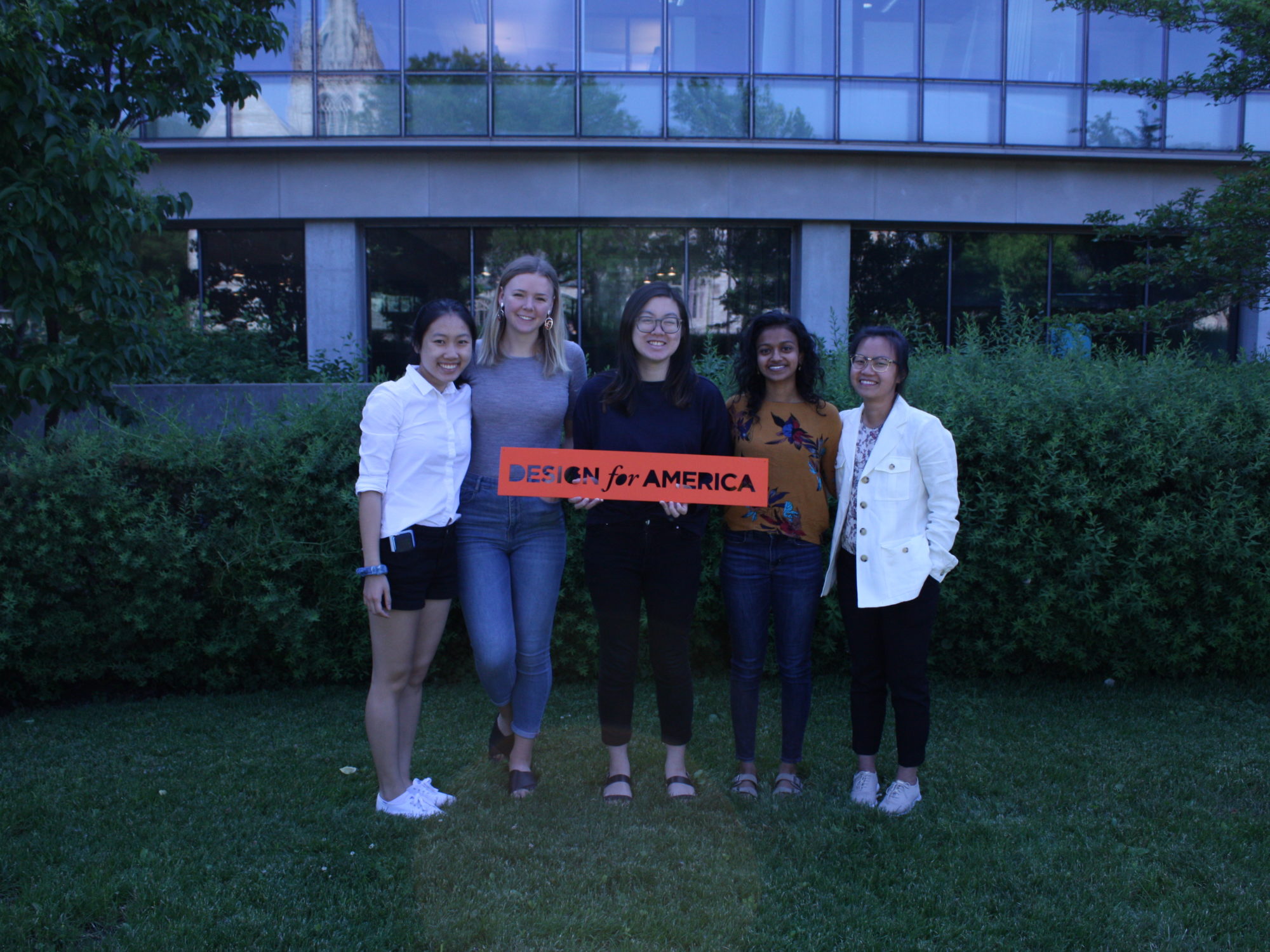Kate Rose is a junior at Tulane studying Political Economy, International Development, Urban Studies, and French. In Summer 2019, she received a Changemaker Catalyst award to intern at Design for America as a Community Engagement Coordinator, exploring what it means to build meaningful relationships with community stakeholders, research a critical social issue in the Chicago community, and build equity into every step of the human-centered design process.
After building a meaningful relationship with the nonprofit PlayBuild in the New Orleans community, I was invigorated to seek out a summer opportunity that allowed me to continue forming relationships with people and organizations that could be mutually-beneficial and not transactional. I started working at Design for America’s national office in May as a community engagement intern, responsible for researching climate change and building relationships with community partners to prepare for a design summit in August 2019.
Although I entered the internship with a passion for social justice, I wasn’t aware of the depth of interconnectedness between climate change and inequality. As part of a design research team of three, I had the opportunity to explore climate change in depth by attending over 20 events in the Chicago area, speaking to 30 different individuals doing on the ground work to address climate change, and volunteering with organizations like the Sierra Club throughout the summer. In building relationships with people and organizations that have been impacted by environmental racism, or “the disproportionate impact of environmental hazards on people of color” (ejnet.org via Sierra Club), I learned about the ways that environmental justice is central to any effort to address climate change and yet often ignored in mainstream dialogue about climate change. After immersing in this issue in Chicago in preparation for a design workshop around the topic of climate change, my team was inspired to illuminate this dialogue in the way that we presented “climate change” to workshop attendees.

I was also deeply enriched by my experiences and relationships with other people this summer. Within my team at Design for America, for example, I experienced a culture of feedback and iteration that allowed me to leverage the knowledge and expertise of my coworkers to improve my own research process. Some of the documents that my team was preparing for our design sprint went through up to six rounds of feedback with members of the office. Each time we received comments on a document or presentation, I spent time going through every insight and rethinking our ideas. Building in this time allowed me to create a design sprint that was reflective of our body of work as well as learn countless skills about the value of synthesizing feedback.
Through the process of building relationships with community partners, I’ve also learned new strategies to establish trust and build equity into the spaces I engage with. When working with people in individual and group settings, for example, I’ve learned new strategies to make people feel more comfortable and give them space to start a conversation about their work. One of these strategies involved contributing my own time to organizations like the Sierra Club, where I had the change to see firsthand how the time I spent with people at the organization built trust and deepened our working relationship. The nature of design research often emphasizes the need for a large quantity of information, interviews, and community partners, but my experience at Design for America has taught me that it can be more powerful to focus on building a handful of mutually-beneficial relationships instead of curating partnerships that could be extractive or exploitative of people and their time.

Finally, given the responsibility of choosing which community partners to involve in our summit, it was also critical to learn about the ways that some organizations and people have been historically excluded from dialogues around environmental design. In Chicago, for example, many larger environmental organizations- called “Big Greens-” have had access to extensive funding and press coverage to build their capacity. This can sometimes come at the expense of support for smaller nonprofits and neighborhood-based organizations that are actively creating a more inclusive dialogue around environmental issues and building resilience in their communities. Given this awareness, my research team wanted to be intentional about reaching out to a broader spectrum of environmental organizations as well as keeping in mind the systematic factors that led to this exclusion.

As I complete my internship and begin my junior year at Tulane, I’m so grateful to the Taylor Center for supporting this experience. I’ve grown and learned so much from the experiences I’ve had at Design for America, particularly related to the ways that equity is fundamentally connected to the topic of climate change and the process of building relationships. When I return to New Orleans, I am excited to explore new ways to center equity and inclusion into the spaces I’m already involved in at Tulane as I’ve learned in Chicago from my incredible teammates.
